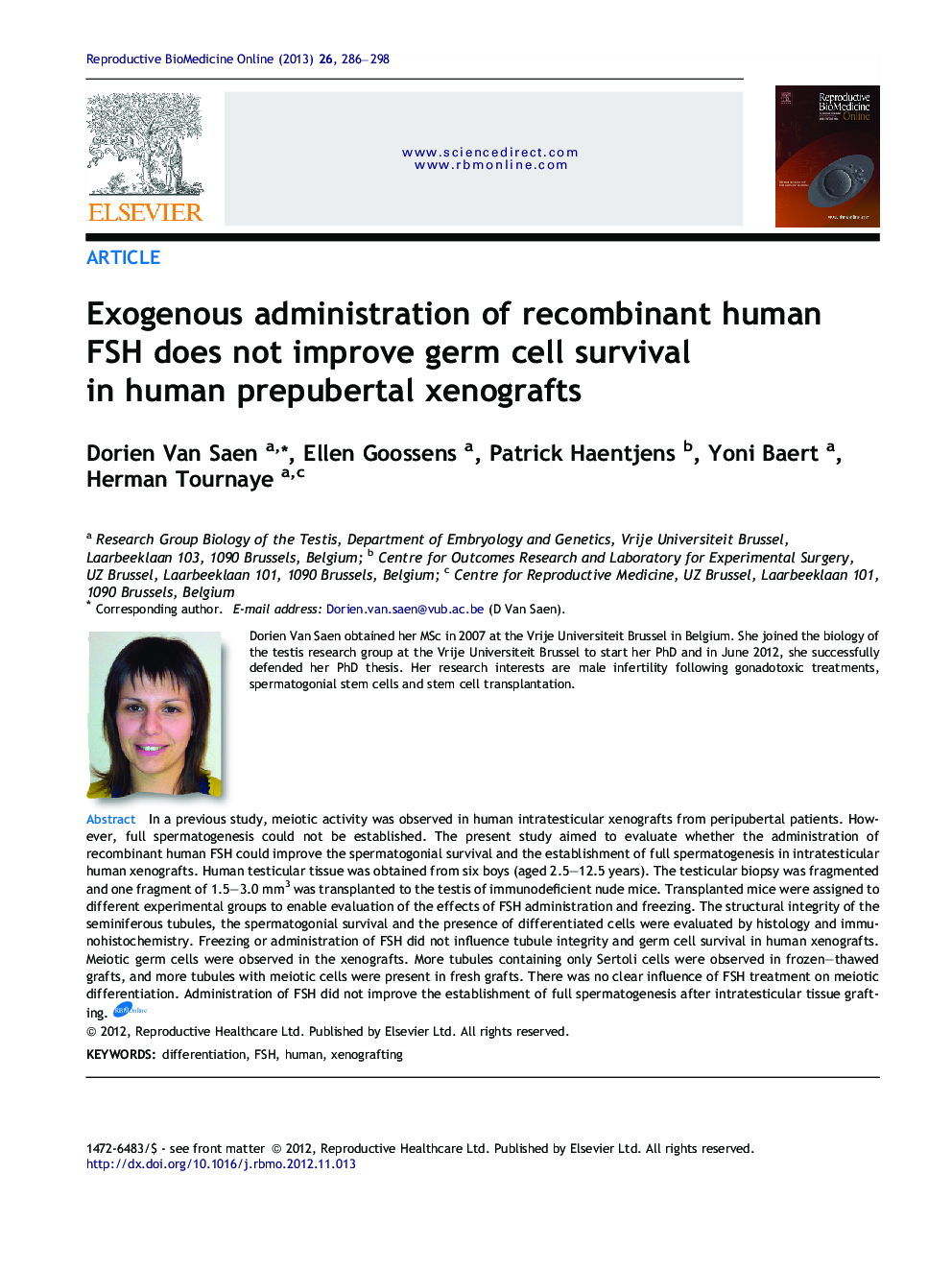| Article ID | Journal | Published Year | Pages | File Type |
|---|---|---|---|---|
| 3970669 | Reproductive BioMedicine Online | 2013 | 13 Pages |
In a previous study, meiotic activity was observed in human intratesticular xenografts from peripubertal patients. However, full spermatogenesis could not be established. The present study aimed to evaluate whether the administration of recombinant human FSH could improve the spermatogonial survival and the establishment of full spermatogenesis in intratesticular human xenografts. Human testicular tissue was obtained from six boys (aged 2.5–12.5 years). The testicular biopsy was fragmented and one fragment of 1.5–3.0 mm3 was transplanted to the testis of immunodeficient nude mice. Transplanted mice were assigned to different experimental groups to enable evaluation of the effects of FSH administration and freezing. The structural integrity of the seminiferous tubules, the spermatogonial survival and the presence of differentiated cells were evaluated by histology and immunohistochemistry. Freezing or administration of FSH did not influence tubule integrity and germ cell survival in human xenografts. Meiotic germ cells were observed in the xenografts. More tubules containing only Sertoli cells were observed in frozen–thawed grafts, and more tubules with meiotic cells were present in fresh grafts. There was no clear influence of FSH treatment on meiotic differentiation. Administration of FSH did not improve the establishment of full spermatogenesis after intratesticular tissue grafting.In our previous study, meiotic activity was observed in human intratesticular xenografts from peripubertal patients. This study aimed to evaluate whether the administration of recombinant human FSH could improve the spermatogonial survival and the establishment of full spermatogenesis in intratesticular human xenografts. Human testicular tissue was obtained from six boys (aged 2.5–12.5 years). The testicular biopsy was fragmented and one fragment of 1.5–3.0 mm3 was transplanted to the testis of immunodeficient nude mice. Transplanted mice were assigned to different experimental groups to enable the evaluation of the effects of the administration of FSH and freezing. The structural integrity of the seminiferous tubules, the spermatogonial survival and the presence of differentiated cells was evaluated by histology and immunohistochemistry. Freezing or administration of FSH did not influence tubule integrity and germ cell survival in human xenografts. Meiotic germ cells were observed in the xenografts. More tubules containing only Sertoli cells were observed in frozen–thawed grafts and more tubules with meiotic cells were present in fresh grafts. There was no clear influence of FSH treatment on meiotic differentiation. This study shows that administration of FSH did not improve germ cell survival or the establishment of full spermatogenesis after intratesticular tissue grafting.
